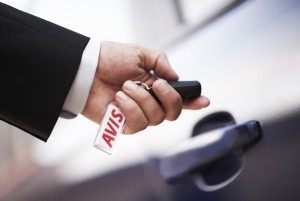
Author: Miles Peters
It’s easy to only think of a rental car when you’re going on holiday.
You know, those airport perimeter roads near the long stay car park that are littered with forecourts jam-packed with cars waiting to go on short term loan to travellers. Likewise, if your car has been off the road due to an accident, your insurance company may provide a rental whilst it is off the road awaiting repair.
Either way, it’s very easy to forget the potential benefits of rental cars to businesses on an everyday basis.
1) Claim it back!
You can claim back the hire cost in full as a business expense, with the obvious tax benefit of taking the money out of your gross not your net income. And you don’t have the standing costs of a traditional company car or pool car.
2) Claim more back!
Much of the VAT is recoverable. With rentals currently attracting a 20% premium for VAT alone, you’ll be pleased to hear that a lot of it is recoverable. This can work out to be quite a significant reduction over the advertised price.
Usually when you lease or hire a car for business, HMRC limits the amount of VAT you can reclaim to 50%. There are some exceptions, though. And this is particularly relevant to daily rental cars for business. You can reclaim all the VAT if the car is used exclusively for business.
There are some limitations that apply to self-drive hire that you should be aware of. For example, if you hire a car just to replace a company car that is off the road then you’ll only be able to reclaim 50 percent of the VAT on the hire charge. Should you hire a car for other reasons though – perhaps you don’t have access to a company car at all – then you can reclaim all the VAT so long as the hire is specifically for business use and or a term no longer than ten days.
3) No insurance hassles!
Is the vehicle going to have any business use? Is it Business Use: Class 1, 2 or 3? You may know the answer, but do your employees? If they say they’ve got adequate cover, can you be sure? What if they were to have an accident in their personal vehicle whilst on company business? Who would foot the bill if the insurer didn’t pay out?
Business daily rental packages will include full business use and even cover additional drivers for a nominal fee, allowing employees travelling together to split the effort on long journeys. So your duty of care issues are taken care of professionally. By someone else. You can get on with running your company.
4) No worries!
Renting a car completely avoids the need to check an employee’s private car is up to the job. MOTs, tyres and breakdown cover are all things to consider – along with ensuring the employee is claiming their mileage back at the right rate for the specific vehicle and journey travelled. There’s none of that with a daily rental car. All cars are usually less than six months old.
5) Simple to use
Unlike pool cars which can sit around for days taking up valuable spaces in your increasingly limited office car park, and costing you money for sitting there, rental cars are only there when you need them. There are no lengthy processes like credit checks before renting a car, you can simply turn up with a credit card and drive one away. Even if the driver doesn’t have his own plastic, it’s quite straightforward to get your office manager to pre-pay online ready for your employee to pick it up with their driver’s licence for identity. It’s perfect pay on use transport.
Of course, everybody’s circumstances vary significantly so it’s important to consult your accountant or financial adviser to ensure that the steps you are taking are appropriate and comply with tax regulations – they will provide the professional advice you require – but, for many reasons, business car rental makes a lot of sense for the company car policy of small businesses and SME fleets. It keeps your business flexible, mobile and can help reduce the cash flow stress on your business – without you going to the expense of providing company cars – as part of a sensible company car management policy.








